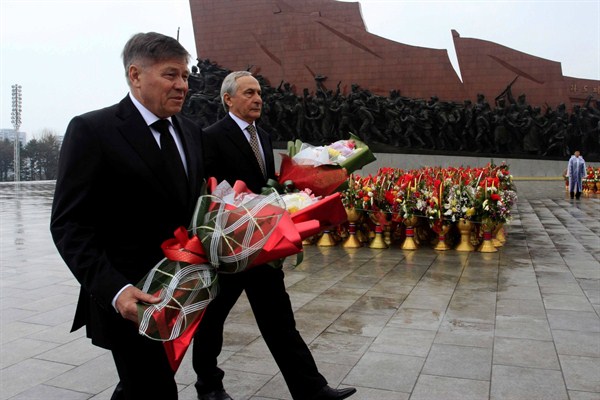As North Korea continues to antagonize its neighbors and the United States with threats of nuclear warfare, many have looked to China to rein in its contentious ally. But Russia has also spent years cultivating close ties with Pyongyang, providing it with vital diplomatic protection at the United Nations Security Council, even if economic ties have lagged. In this email interview, Richard Weitz, director of the Center for Political-Military Analysis at the Hudson Institute, discusses what is driving the relationship between the two countries, how it has evolved, and how it impacts efforts to isolate the North Korean regime in the international arena.
WPR: What is the foundation of bilateral Russia-North Korea ties, and how have they evolved in recent years?
Richard Weitz: Most obviously, Russia borders the Korean Peninsula and shares an 11-mile common frontier along the Tumen River with North Korea. The geographic proximity has contributed to the development of substantial historical and ethnic ties between Russians and Koreans. Furthermore, the proximity guarantees substantial Russian official interest in Korean developments and ensures that Russian representatives strive to participate in any multilateral negotiations regarding the Koreas. Russian diplomatic initiatives aim to highlight Moscow’s status as an important player in East Asia in general, and Korean security issues in particular.

